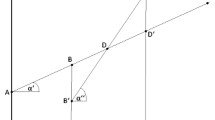Abstract
The Industrial Revolution of the eighteenth century in England is the central event of modern economic history. In spite of Ranke’s dictum that every moment is ‘equidistant from God’ much of the research on earlier periods has been devoted to seeking its origins and antecedents. The experience of the last two centuries can be interpreted as the diffusion of the mechanism of continuous technical progress from Britain, where in the evocative title of David Landes’s book Prometheus was first unbound, to Western Europe and the United States, then to Russia and Japan and in our own time, with varying degrees of success, to the develo** countries. The sequence of Walt Rostow’s seminal works has reflected this very same movement, beginning with the British economy of the nineteenth century and moving outwards in space and time to encompass the contemporary world.
Access this chapter
Tax calculation will be finalised at checkout
Purchases are for personal use only
Preview
Unable to display preview. Download preview PDF.
Similar content being viewed by others
References
Berrill, K., ‘International Trade and the Rate of Economic Growth’, Economic History Review (December 1960).
Crouzet, F., ‘Wars, Blockade and Economic Change in Europe 1792–1815’, Journal of Economic History (December 1964).
Crouzet, F., ‘England and France in the Eighteenth Century: A Comparative Analysis of Two Economic Growths’, Chap. 7 of R. M. Hartwcll (ed.), The Causes of the Industrial Revolution (London: Methuen, 1967).
Deane, P. and Cole, W. A., British Economic Growth 1688–1959 (Cambridge University Press, 1969).
Deane, P. and Habakkuk, H. J., ‘The Take-Off in Britain’, in W. W. Rostow (ed.), The Economics of Take-Off into Sustained Growth (London: Macmillan, 1963).
Findlay, R. and Grubert, H., ‘Factor Intensities, Technological Progress and the Terms of Trade’, Oxford Economic Papers (February 1959).
Flinn, M. W., Origins of the Industrial Revolution (London: Longmans, 1966).
Hartwell, R. M., ‘The Causes of the Industrial Revolution: An Essay in Methodoloy’, in R. M. Hartwell (ed.), The Causes of the Industrial Revolution (London: Methuen, 1967).
Johnson, H. G., Money, Trade and Economic Growth (London: Allen and Unwin, 1962).
Kindleberger, CP., ‘Foreign Trade and Economic Growth: Lessons from Britain and France, 1850–1913’, Economic History Review (December 1961).
Mantoux, P., The Industrial Revolution in the Eighteenth Century (London: Jonathan Cape, 1961).
Rostow, W. W., The Stages of Economic Growth (Cambridge University Press, 1960).
Editor information
Editors and Affiliations
Copyright information
© 1982 Charles P. Kindleberger and Guido di Tella
About this chapter
Cite this chapter
Findlay, R. (1982). Trade and Growth in the Industrial Revolution. In: Kindleberger, C.P., di Tella, G. (eds) Economics in the Long View. Palgrave Macmillan, London. https://doi.org/10.1007/978-1-349-06287-4_11
Download citation
DOI: https://doi.org/10.1007/978-1-349-06287-4_11
Publisher Name: Palgrave Macmillan, London
Print ISBN: 978-1-349-06289-8
Online ISBN: 978-1-349-06287-4
eBook Packages: Palgrave Economics & Finance CollectionEconomics and Finance (R0)




